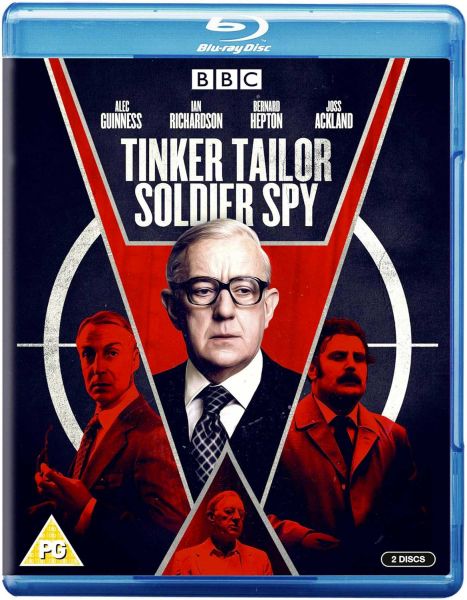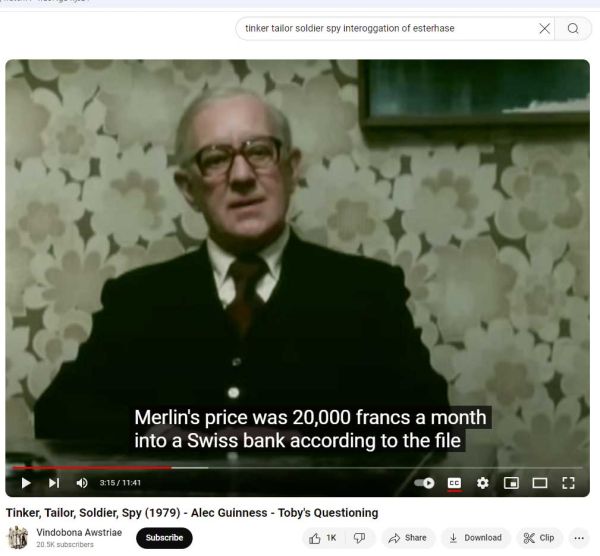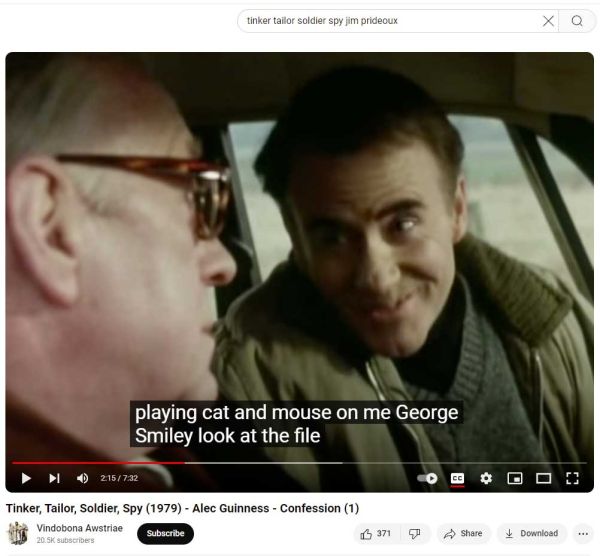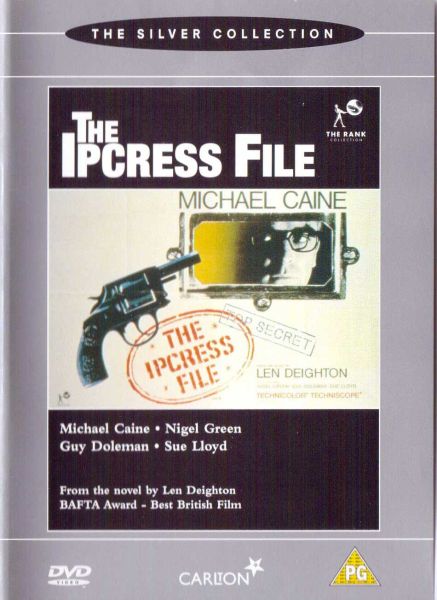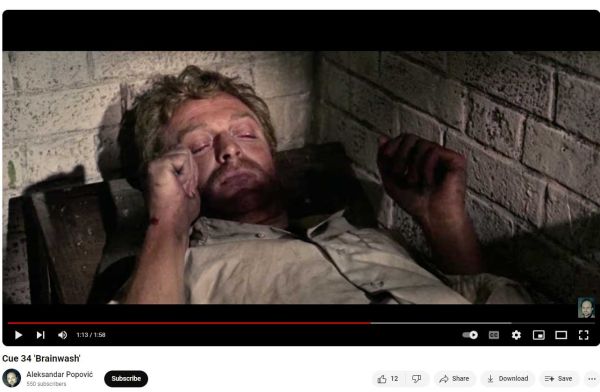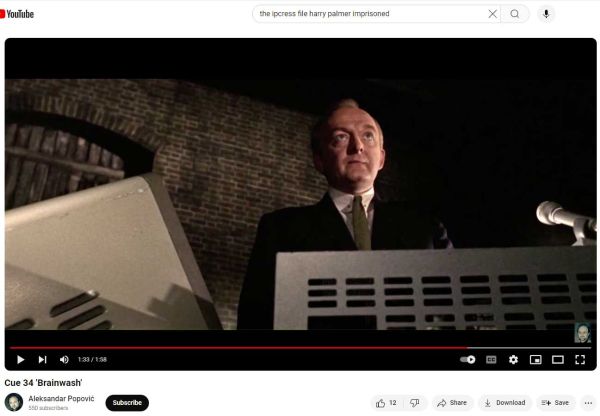Read the File!
Read the File!
In 1980, PBS, the Public Broadcasting System broadcast the seven-part television-drama Tinker, Tailor, Soldier, Spy, based on the novel of the same name by the late John le Carré, and starring an all-British cast led by the late, great Alec Guinness and co-starring some of Britain's greatest acting talents of the day, like Ian Richardson, Michael Aldridge, and Ian Bannen.
The plot concerns a British spy-hunter's search for a Soviet double-agent, employed by the British Secret Service. Much of the search takes place in a peculiar setting, men working in a secret, high-echelon bureaucracy combatting the stress and tedium of their daily work-day, and the subordinate officials suffering under the demands of their hard-ass superiors. But the officials know the ropes and nevertheless accept it as status quo.
Tinker, Tailor, Soldier, Spy changed my life. I had finished college four years before and did not feel real comfortable with the day-to-day give-and-take of office politics. I interacted on an hourly basis with people who were twenty years older than me, who had a different perspective about life and possibly mixed feelings about my youth.
After watching Tinker, Tailor, I became more conscious how businesses and bureaucracies rely on files to keep their work-loads manageable. In one scene, the spy-hunter George Smiley confronts another official Toby Esterhase. Toby tries to squeak past the interrogation by omitting details of his work, and Smiley reminds Toby that, after all, he has read the file and already knows most of the answers. He just tests Toby's honesty with each question he asks, and to convey to Toby implicitly that he has bureaucratic authority backing him, in case Toby wants to defy him.
Another official Jim Prideaux doesn't even bother to attempt to deceive Smiley. He just tells Smiley, "If you want to know things, read the file!" Prideaux already concedes that Smiley has ministerial authority to read every file relating to him, including the files that go back to Prideaux's university education. Le Carré could titled his work "Tinker, Tailor, Soldier, Bureaucrat, Spy".
I did not see the movie The Ipcress File, when it came out in 1965. My parents would have deemed it unsuitable. I would have disliked its drab colors and disjoint plot anyway; but as its title suggests, it concerns files, and again in a secret, high-echelon bureaucracy. The main character Harry Palmer, played by Michael Caine, gets a minor promotion, even though his superiors loathe him; and they let him know this in no uncertain terms. Palmer has to listen while they read from his "B-107", his personnel file. Later they introduce him to another tedious file, the "L-101", which lets them know
how Palmer has spent his work-day, not to mention the taxpayers' money.
Most importantly, Palmer has to deal with the "IPCRESS" file, an acronym for a new brainwashing technique, based on a secret report, "The Induction of Psychoneuroses by Conditioned Reflex Through Stress". Other bureaucrats in Palmer's office have placed the IPCRESS report and related material in a file, that gives the movie its title.
Palmer succeeds where other investigators have not, because he does not work like an investigator. He thinks like a criminal, skirting the law, lying in his teeth, and exploiting his co-workers. All of these qualities help him unmask the conspiracy that uses the new brainwashing technique for their own benefit—double-agents in his own office! They know how close Palmer has come to exposing them; so they kidnap him and subject him to the IPCRESS brainwash.
But the brainwashers cannot break him. While they stand over him threateningly, he lets them know he has a trick up his sleeve and taunts them: "I know what you're doing, because I've read the file."
I saw The IPCRESS File for the first time after I finished college in 1976, when my parents signed up for the new cable-TV service from Turner Broadcasting.
So when I started work for my father, I already knew one real important fact about life: If you want to know things, read the file—if they'll let you!

